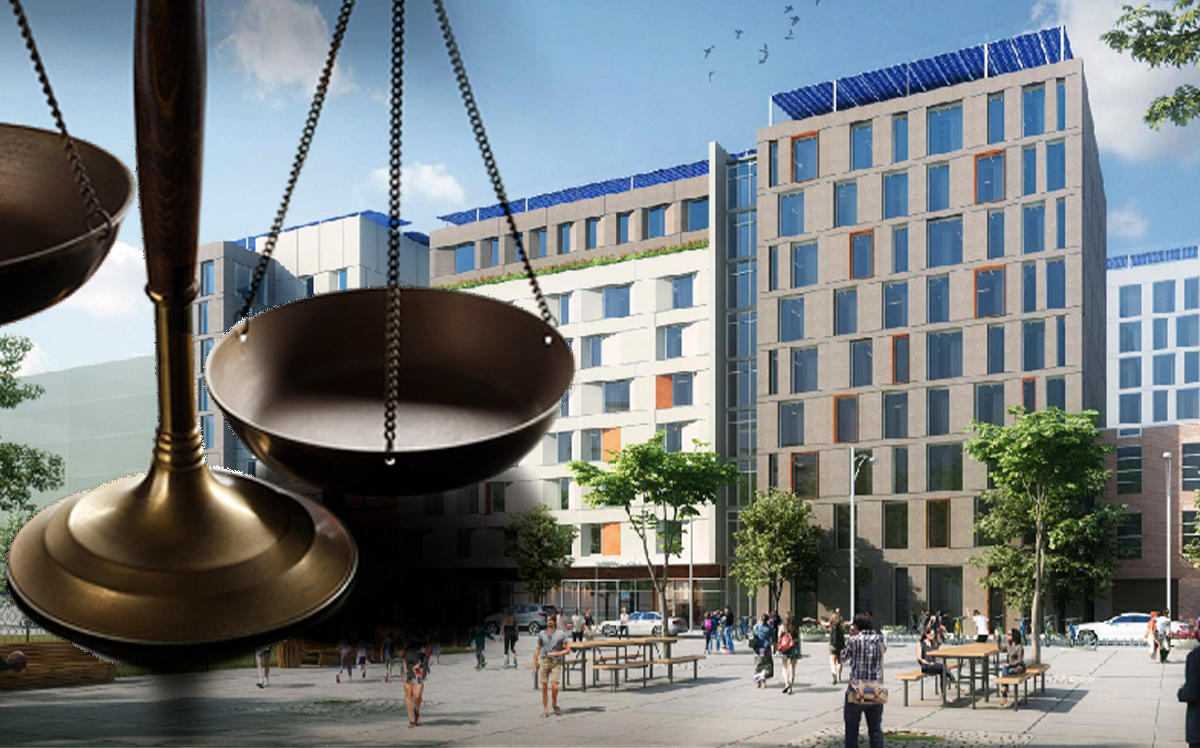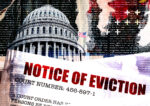Trending
Suit against Rabsky’s Broadway Triangle project dismissed again
Lower court had previously dismissed discrimination lawsuit in summer 2018

An appellate court has upheld the dismissal of a lawsuit that accused Rabsky Group’s Broadway Triangle project of discriminating against people of color.
Churches United for Fair Housing in 2018 asked the court to nullify the rezoning of the former Pfizer site in Brooklyn where Rabsky is building its project. The suit also sought to implement a requirement that the city conduct racial impact studies whenever it rezones a property: Churches United argued that the project’s market-rate units would mostly go to “wealthy whites,” the affordable units would mostly go to Hasidic tenants, and minority tenants in the surrounding areas would get priced out by rising rents.
Judge Arthur Engoron dismissed this lawsuit in the summer of 2018, and New York’s appellate division upheld his decision in a ruling handed down in late February.
The appellate court ruled that the city “amply met” its fair housing obligations by making sure that Rabsky complied with its rules for the ratio of affordable to market-rate housing units. The city also did so by limiting the amount of three- and four-bedroom affordable units in the project in response to community concerns, the ruling says.
“The city was not required to perform analysis aimed at forecasting the mix of ethnicities expected to occupy units in the development and the corresponding impact on prevailing area patterns of racial and ethnic concentration,” the decision reads.
Rabsky’s eight-building project is bounded by Harrison and Union avenues in South Williamsburg, and it will consist of 859 market-rate housing units, 287 affordable units and 65,000 square feet of retail space.
“We are pleased the court agreed the city fully complied with its obligations under the fair housing law,” said Law Department spokesman Nick Paolucci.
Representatives for Rabsky did not respond to a request for comment.
Adam Meyers, the attorney for Churches United, said he was disappointed by the decision, and the group is still figuring out its next steps.
“We’re considering our options in respect to seeking further appeal and looking at what other alternatives might be available to advance this conversation and get this critical issue addressed,” he said.
A bill introduced in the City Council last May by Public Advocate Jumaane Williams would mandate a racial impact study be conducted for any land-use action requiring an environmental review, such as rezoning. A rally for the legislation was held at City Hall in December but it remains stalled.
Mandatory inclusionary housing, which the Council passed four years ago at the behest of the de Blasio administration, requires affordable housing be included in residential developments that benefit from rezoning. But sentiment has since grown in some circles that even with this affordability component, rezoning that adds market-rate housing drives up rents and causes displacement.
“We’ve lost the narrative,” said Vicki Been, the deputy mayor for housing and economic development, last year.




